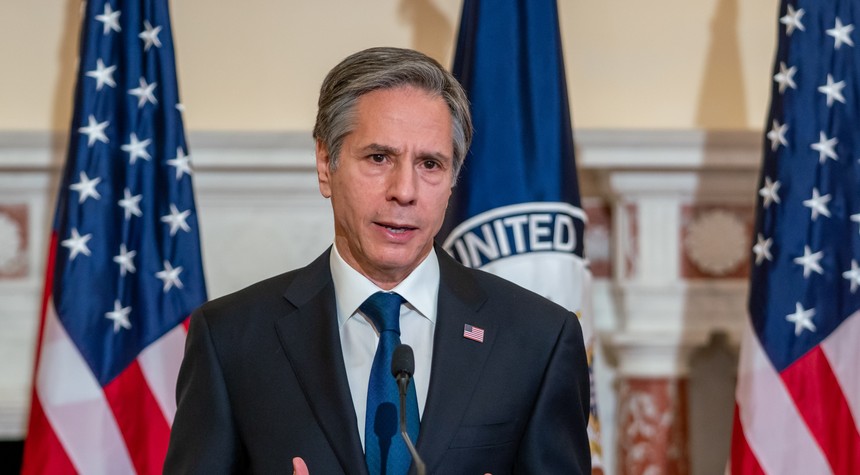You are not as stupid as “they” say you are. How smart you are is another matter. After 75 years of nonstop miseducation, mass media indoctrination, and periodic orgies of fear in this country, you are still pretty smart.
This general intelligence is called “common sense” and likely was inherited at the dinner table from ancestors who were sharp enough to get out of the dodgy Old World, coupled with a residual of cultural smarts that lingers even yet. Whether it comes from the general environment of our small towns—from our Cape Cod houses to the Pueblo revivals of the southwest—or if it lies in our appreciation of a good hamburger, mom’s apple pie, Mark Twain, or even Dr. Seuss there are just wholesome things that are part of being an American. This is where we live with our heritage and deal with our mistakes, even after a 75-year harangue by the pseudo-intellectuals who think they are smarter but have been unable to shake us down to their level of self-loathing and bigotry.
You might ask why? Why would so many people want to give up something as generally pleasing and comparatively comfortable as traditional American values and all of the advantages they have attained for human freedom? Why, against a historical background so well described by Thomas Hobbes in the Leviathan as a condition with “No arts; no letters; no society; and which is worst of all, continual fear and danger of violent death; and the life of man, solitary, poor, nasty, brutish, and short,” just in order to take on the harsh and destructive rhetoric of modern ideology?
The answer, as is often the case with the most difficult questions, is a very simple one: stupidity.
This holds true today as surely as it would have held for Robespierre in 1790 or for Vladimir Lenin in a previously blossoming Russia of 1918. The inherent cause of this stupidity, as it overcame otherwise intelligent individuals who we can imagine might have wanted the best for their own societies, is the poison of “ideology.”
The petty religion of ideology, fashioned as it is from whole cloth and without the aesthetic of hundreds or even thousands of years of societal evolution, must dispose of the old foundation entirely in order not to be compared with it otherwise. For Robespierre, it was the secular philosophy of Jean-Jacques Rousseau. For Lenin, it was the equally secular philosophy of Karl Marx. But for both, a particular personal motivation was an obvious egotism and hubris blinding them to the inevitable costs and pain of such an utter break in any society.
Our own founders went out of their way to establish the bona fides of their complaints, wishes, and aims based on what was then still a meager tradition of individual rights in British history. But this they did with a vengeance, knowing that to remake even what little sense of freedom preceded them was to lose all justification in the eyes of those who would be governed by their choices. Their true genius was not in reimagining the world they lived in, but in reshaping it.
The Marxist-infused ideology which has now overcome academia and our self-anointed ruling class in recent generations is not based on any imagined sense of human equality—most of them believe in their own superiority over the “average” citizen—but on the same sort of hubris that inspired Lenin and Robespierre, and countless other tyrants of old. It is based on a fundamental disrespect for traditional values. Religion is only good as an opiate for the masses. And now, with their own new device, “artificial intelligence,” they will finally control every aspect of those brutish lives.
The current abandonment of traditional culture by the state media (most media, to be fair), in favor of a politics of despair—only to be interrupted by natural disasters, weather, sports, crime, and celebrity news—reflects much of the same sensibility on the part of the general public. But this should not be taken wrongly. A peek at 19th-century popular media—broadsides, newspapers, magazines—presents the same sort of taste on the part of our recent ancestors. The great literary journals of that age had a circulation very similar to comparable publications today: relatively small. The media have changed a little, from newspapers to computer monitors, but not the human beings who use them.
The internet has made the presentation of popular interests more immediate, to be sure, but the real differences are both more subtle and more obvious. One key factor there is the lack of a permanent record. Foolish or evil remarks made on a website may be disappeared in hours or altered by the artifice of A.I., and there are no longer the kind of public libraries where back issues are maintained. In recent years, beginning with the “television age” after World War II, the visual image has become dominant, and words diminished. The newspaper adage, “If it bleeds, it leads,” has taken on a more prurient aspect, and that pornography of violence coupled with technology no longer leaves anything to the imagination.
The presentation of politics itself has become more sophisticated. Anti-slavery storylines were common in 1850, as were the depictions of the beloved family member who just happens to be a piece of property. The rapacious factory owner exploiting his workers was as common in literature as the generous benefactor of hardworking and honest youth. But, as factory managers have become subordinate to the arcane wishes of multinational corporate boards obscuring national interests, the employment of “foreign workers” who have no cultural ties has become more than an economic issue.
To those few who bother to look for context, our present sargasso sea of conflicting values often places the “best interests” of the public up for interpretation. Is pollution the same as climate change? Are equal rights the same as equity? And, even yet, we are not smart enough to stop voting for the professional liars who run our government. We still have some learnin’ to do.
Andrew Breitbart was famously glib, but one quip will likely survive anything else he said, “Politics is downstream from culture.” Our current obsession with the politics of the moment, rather than the wisdom of the ages, must be seen in this light in order not to be forever ruled by ideology.











